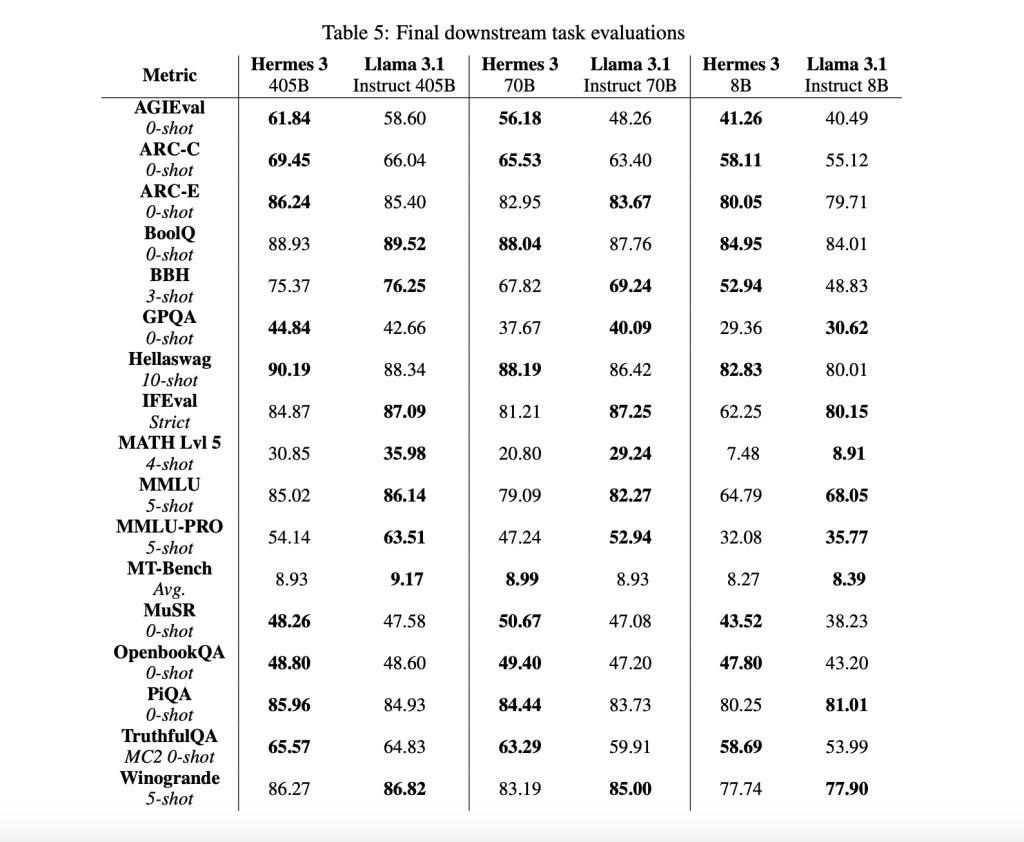In today’s world, users expect AI systems to behave more like humans, engaging in complex conversations and understanding context. Despite the significant advancement in large language models (LLMs), these models heavily rely on humans to initiate tasks. There is room for improvement in tasks like role-playing, logical thinking, and problem-solving, especially in case of long conversions. The inability to recall and reference information from earlier parts of a conversation makes LLMs inefficient for repeated conversions and tasks.Â
Nous Research addresses the challenge of making LLMs more user-friendly, controllable, and effective in generating high-quality responses. While “base†or “foundation†models are trained on a wide range of text data, they often struggle to maintain coherence and context over multiple turns. This lack of steerability and consistency limits their practical utility, particularly for users needing models to respond reliably to specific prompts.
Current methods for improving LLMs include instruct-tuning and chat-tuning, where models are fine-tuned to respond to specific commands or to engage in conversations. However, these methods often have limitations, such as an inability to follow nuanced instructions or to remain neutral in their responses. To address these limitations, Nous Research introduced Hermes 3, an advanced open-source language model built on Llama 3.1. Hermes 3 models are designed to be highly steerable, allowing them to follow system and instruction prompts precisely while incorporating advanced reasoning and creative capabilities. The largest model, Hermes 3 405B, is particularly noted for achieving state-of-the-art performance on several public benchmarks.
The Hermes 3 models are created by fine-tuning Llama 3.1 models, which have 8B, 70B, and 405B parameters, respectively. The fine-tuning process is carefully designed to ensure the models’ sensitivity to system prompts, allowing them to adopt different personas and respond accurately to diverse user instructions. The largest model, Hermes 3 405B, is especially adept at maintaining coherent and contextually relevant multi-turn conversations, making it suitable for interactive applications like role-playing. The model also exhibits a wide range of advanced capabilities, such as judgment and reward modeling, agentic reasoning, and tool use. These capabilities are trained on a diverse dataset which includes synthetically created reasoning tasks and domain-specific data. Performance evaluations show that Hermes 3 models outperform their counterparts on several benchmarks, demonstrating significant improvements in tasks ranging from code generation to complex reasoning and creative writing.
In conclusion, the study presents Hermes 3 as a robust solution to the limitations of existing LLMs, particularly in terms of steerability and performance. By fine-tuning Llama 3.1 models and incorporating advanced reasoning and tool use capabilities, Hermes 3 effectively addresses the problem of making LLMs more controllable and versatile for a wide range of applications. The model’s superior performance on public benchmarks underscores its potential as a state-of-the-art tool for general and specialized tasks.
Check out the Paper and Model Cards. All credit for this research goes to the researchers of this project. Also, don’t forget to follow us on Twitter and join our Telegram Channel and LinkedIn Group. If you like our work, you will love our newsletter..
Don’t Forget to join our 48k+ ML SubReddit
Find Upcoming AI Webinars here
The post Nous Research Open-Sources Hermes 3: A Series of Instruct and Tool Use Model with Strong Reasoning and Creative Abilities appeared first on MarkTechPost.
Source: Read MoreÂ



